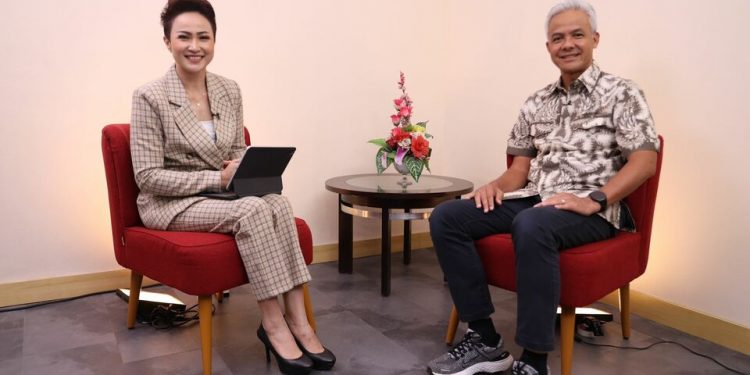IDNAround – Central Java Governor Ganjar Pranowo recently unveiled his readiness to run for president in the 2024 election.
“For this nation and country, what are we not ready for?” Ganjar, who belongs to the ruling Indonesian Democratic Party of Struggle (PDI-P), said on the BeritaSatu Special program aired on BTV on Tuesday.
According to Ganjar, there are currently two “realities”: the political process within the party itself and the opinion surveys, which he has been in a leading position for several months now.
“There are two realities. First, I’m a party member, and I have to respect the political process within the party. Second is the social reality, namely the survey, which truly exists. So let us give the party a chance for them to have dialogue and communicate to decide on the best,” Ganjar said.
“So I respect PDI-P as my political party. [And] the relations built by the parties currently in communication. As well as the reality of the survey that everyone is talking about. Because we cannot ignore the people’s voice,” he added.
Various polls put Ganjar as the leading presidential candidate since the beginning of this year, ahead of his closest rivals: the former Jakarta governor, Anies Baswedan, and the current defense minister, Prabowo Subianto.
Ganjar said he had been a PDI-P member since his university days back in the 1990s, during which the party was known as PDI.
PDI-P is the only political party that meets the presidential threshold, thus, the only one that can nominate a presidential candidate on its own. In contrast, other parties have to form a coalition.
“But I think this nation is too large to care for alone. Many existing multidimensional problems call for unity. Initial steps have taken place during Mr. President [Jokowi’s] two terms. But there exists divided society and polarization; this needs to be reconciled to face the challenges ahead. The economic problem is a tough one […] and how we try to draw investors to boost the economy,” Ganjar said.
“Not to mention the challenges concerning energy, food, and environment,” he added.
The 2017 Electoral Law states the presidential threshold is 20 percent of the House seats or 25 percent of the popular vote. In short, a party or a coalition of parties must have at least 115 parliamentary seats to nominate a candidate for the presidential race. PDI-P has 128 seats.
Related News: Anies Baswedan Bids Farewell to Jakarta as He Prepares for Bigger Prize









